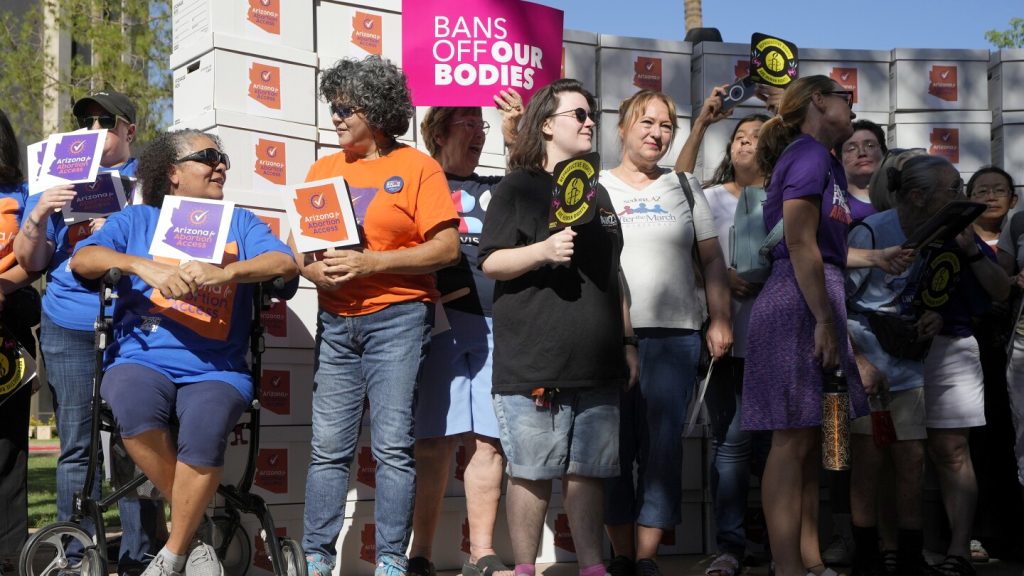Ballot measures regarding abortion access have the potential to attract voters who may not otherwise participate in the upcoming November election. These measures could have an impact on close races for various offices, from the state legislature to the presidency. Scholars and experts are divided on the historical impact of ballot measures on candidate elections, but with the recent Dobbs v. Jackson Women’s Health Organization ruling by the Supreme Court ending the nationwide right to abortion, these measures are being closely watched for their potential to influence election outcomes.
Nine states are considering measures to add the right to abortion to their state constitutions, with Nebraska having a competing measure that would enshrine current laws outlawing most abortions after the first 12 weeks of pregnancy. In addition to abortion-related measures, there are over 140 questions being posed in 41 states on a variety of issues including marijuana legalization, immigration, election procedures, sports betting, and minimum wage. Since 2022, the position advocated by abortion rights advocates has prevailed in all seven statewide abortion-related ballot measures, even in conservative states like Kansas and Kentucky.
Political science professor Dave Campbell sees parallels between the upcoming election and the 2004 election, where bans on same-sex marriage were adopted in 11 states, contributing to a tight reelection for President George W. Bush. Vice President Kamala Harris, who recently launched a bus tour to promote reproductive freedom, may benefit from the support of additional voters who prioritize abortion rights. Former President Donald Trump, on the other hand, has expressed support for state restrictions on abortion but has indicated that he would not support a national ban.
It is noted that while significant numbers of Republican voters support abortion rights, most party candidates are now abortion opponents. The impact of ballot measures on candidate races remains to be seen, with suggestions that they could increase voter enthusiasm and potentially alter election outcomes, especially in tight races. In states like Montana, where the balance of power in the U.S. Senate could be affected, incumbent Jon Tester is in a tight race against a Republican opponent who has criticized the abortion ballot measure. Tester’s campaign has released ads supporting abortion rights.
In New York, there has been debate over including the word “abortion” in the ballot measure, with Democrats pushing for its inclusion in a state with potentially close congressional races. Arizona and Nevada are also states with abortion-related measures on the ballot, where control of the state government is divided between parties. Abortion remains a key issue in many competitive districts, influencing both voter mobilization and candidate positions. Support for legal abortion access is evident in polling, but the issue also mobilizes anti-abortion voters, creating a complex political landscape ahead of the 2024 election.
Overall, the impact of abortion-related ballot measures on the upcoming election remains uncertain. With the recent Dobbs ruling reshaping the landscape of reproductive rights, these measures could play a significant role in influencing voter turnout and candidate races. As the election approaches, the interaction between ballot measures on abortion and other policy issues will continue to shape the political dynamics of the 2024 election.


